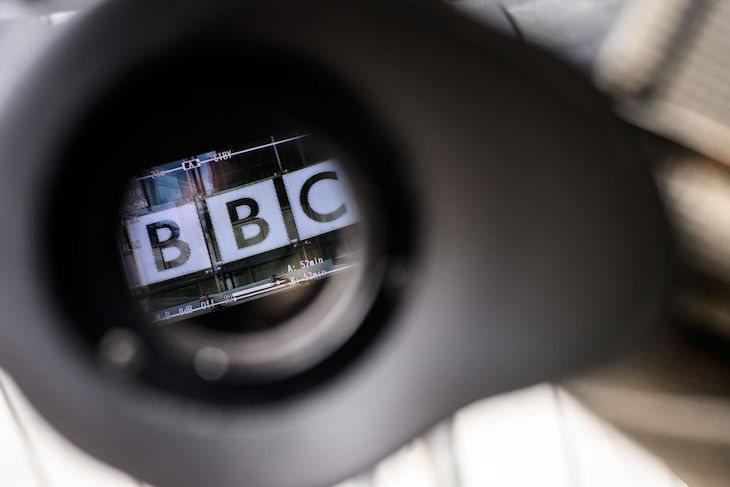This isn’t a sentiment you’ll have read much in recent weeks, given the BBC’s series of appalling misjudgements and editorial disasters. But here goes: Three cheers for the BBC. Its critics are completely wrong and its decision making is spot on.
The BBC is quite right. The party conferences don’t need the broadcast army of hacks they’ve always had
To be clear, I’m not referring to its coverage of Bob Vylan at Glastonbury, the Gaza documentary narrated by the son of a Hamas minister or the BBC’s sacking of the two Masterchef presenters. I’m talking about something it has actually got right – but for which it is nonetheless being lambasted: the decision not to decamp its entire political team, and all its political programmes, to this year’s party conferences.
Previously the lunchtime Politics Live programme has been broadcast from what we used to call the two main party conferences – Labour and the Conservatives – along with Newsnight and much of the news channel’s output. To do that, the BBC has taken around 80 journalists and technicians. That compares with three for ITV and eight for Channel 4. Bloated, you say?
In years gone by, it was possible to see the validity of such largesse in staffing and coverage. The party conferences used to matter. For hacks, they provided an invaluable opportunity to take ‘the feel’ of party members and to speak to politicians in a less guarded environment – especially in the bars late at night. For Labour, the proceedings in the hall also mattered, with its jargon of composites, motions and references back all feeding into an atmosphere where votes counted for something.
I spent too many years having to attend them, first as a policy wonk and later as a hack. You really did have to be there. There was the Bennite wars of the 1980s, the Militant years and John Smith’s 1993 OMOV (one member, one vote) fight. There was Tony Blair’s first conference speech in 1994, when he argued for the abolition of Clause IV (Labour’s constitutional commitment to ‘the common ownership of the means of production, distribution and exchange’) and almost no one in the hall realised what he was saying. Labour conference was the arena in which the party’s future was played out, with fringe meeting battles and – literally – smoke-filled rooms.
Although the conferences mattered, I hated them. All the people I wanted to spend time with I could do so in London. I never got to grips with being forced to spend time with people I had no wish to spend time with, but in a secure area. Add to that the permanent stench of stale air and the annual conference cold, and I was thrilled when I no longer had to go.
Party conferences now are just stage shows, like the US conventions, which exist solely to provide fodder for social media clips of Keir Starmer and Kemi Badenoch’s speeches and to give the mainstream news broadcasters something to talk about.
For the party faithful they’re a fun – each to their own – few days of political self-indulgence and a chance to get drunk with people you’ve seen on telly. For everyone else, they are meaningless for anything other than the set piece speeches – which could equally be broadcast, like Keir Starmer’s first as Labour leader during covid in 2020, online from an empty room.
The BBC is quite right to call out the emperor’s new clothes. The conferences don’t need – and don’t deserve – the broadcast army of hacks they’ve always had. Not least because now they’re not even necessarily the most relevant gatherings, with Reform increasingly solid ahead in the polls.
Caroline Dinenage, chair of the Culture, Media and Sport Select Committee, told PoliticsHome, which broke the story: ‘It’s a surprising move by the BBC, who took over 500 of their staff to Glastonbury.’ She has a point – but the point isn’t that the BBC should take its usual army to the conferences, it’s that it took an absurd number to Glastonbury.
PoliticsHome also quotes a BBC source: ‘We’re really upset about it.’ Chacun à son goût.







Comments